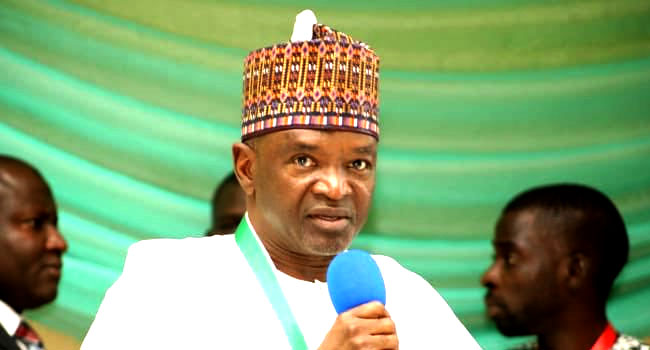The Federal Government, in collaboration with United Nations Industrial Development Organisation (UNIDO) and the Government of Japan, has expressed its commitment to effectively tackling plastic pollution in the country.

Minister of Environment, Dr Mohammad Abubakar, gave the commitment at a presentation of Report on Study of Available Sustainable Alternative Materials to Plastics, Innovative Packaging and Recycling Technologies, in Abuja on Thursday, July 15, 2021.
Abubakar said that the project steering committee on the report, comprising ministries, department and agencies (MDAs), NGOs and professional development partners, was inaugurated on Feb. 25, 2020.
He said that the aim of creating the committee was to work towards reducing plastic leakages to the environment in the country.
Abubakar said that the study was part of series of actions being undertaken by government to address the challenges of plastics waste in a holistic and sustainable manner in the country.
He said that plastic pollution had become one of the gravest environmental problems confronting the global community, with impacts transcending national, regional and international boundaries.
According to him, the magnitude of the problem is reflected in the fact that, each year, about eight million tons of plastics toxic wastes end up in the oceans.
“If this trend continues, it is projected that there will be more plastic than fish in our oceans.
“Nigeria, with a population of about 200 million people, generates about 1.5 million tons of plastic wastes every year of which less than 10 per cent is recycled.
“The problem of plastic pollution in the country is exacerbated by inadequate waste management infrastructure, poor behavioural attitude, unskilled waste collection workforce, indiscriminate dumping and burning of plastics wastes.
“It is also aggravated by poor awareness and inadequate funding among others, and it is against this background that we welcome this particular study on available sustainable alternative materials to plastics,’’ he said.
Abubakar said that Nigeria became the fourth country to join Global Plastic Action Partnership (GPAP) and was in the process of domesticating it into a National Plastic Action Partnership (NPAP).
He added that Nigeria was also a founding member of Africa Circular Economy Alliance, adding that the country had also established National Circular Economy Programme and Circular Economy Working Group.
The minister said that the membership was drawn from both the public and private sectors, adding that the efforts were aimed at underscoring government’s seriousness to tackling plastic pollution in the country.
Mr Jean Bakole, UNIDO Country Representative and Regional Director for West Africa, said that the organisation was working with the ministry to ensure effective implementation of the project.
Bakole said that the study would open up a lot of opportunities on legal and regulatory frameworks, technologically and financially, and promote a circular economy from plastics.
He thanked the Japanese government for providing funds for the implementation of the project and appreciated the ministry and Lagos government for its immense cooperation.
Bakole said that UNIDO had collaborated with the ministry on various projects, such as organising a national workshop on phase-out of non-biodegradable plastics.
He maintained that the workshop attracted more than 50 manufacturers of various plastics products, where they were sensitised about the harmful effects of non-biodegradable plastics.
“The ministry of environment unveiled the UNIDO- supported national policies on solid waste management and plastics waste management, and the collaboration is part of the ways to address environmental challenges in the country,’’ he said.
Bakale, however, reaffirmed UNIDO`s commitment to supporting government toward ensuring an inclusive and sustainable industrial development without compromising the quality of the environment.
Japanese Ambassador to Nigeria, Matsunaga Kazuyoshi, said that his home government would continue to support the government in tackling environmental challenges.
Kazuyoshi thanked the government and UNIDO for their close coordination, adding that the Japanese government was committed to partnering with Nigeria to ensure sustainable development.
By Vivian Emoni
